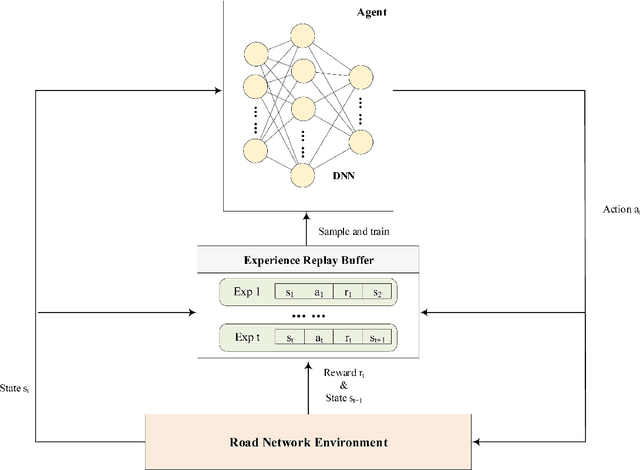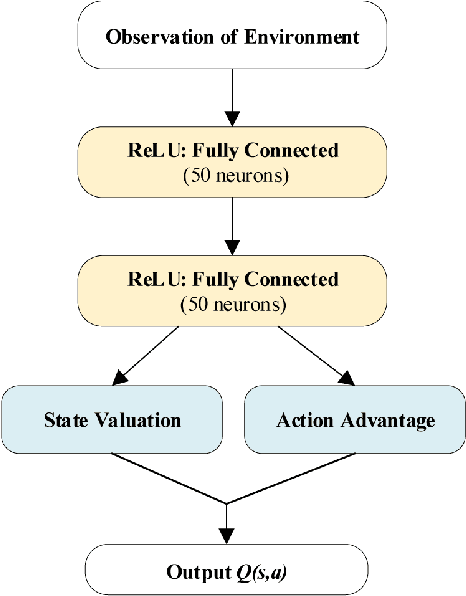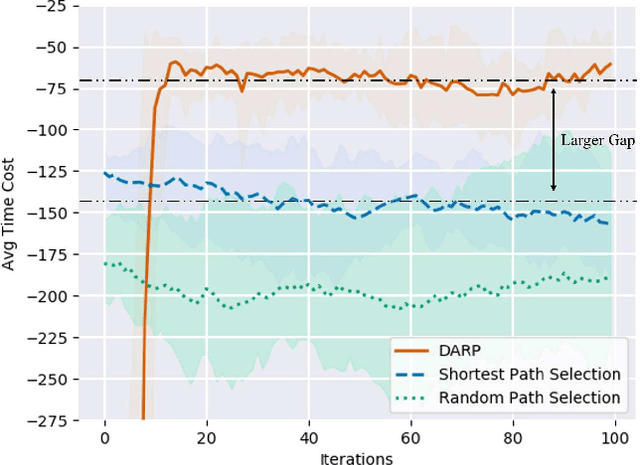Deep Reinforcement Learning Based Dynamic Route Planning for Minimizing Travel Time
Paper and Code
Nov 03, 2020



Route planning is important in transportation. Existing works focus on finding the shortest path solution or using metrics such as safety and energy consumption to determine the planning. It is noted that most of these studies rely on prior knowledge of road network, which may be not available in certain situations. In this paper, we design a route planning algorithm based on deep reinforcement learning (DRL) for pedestrians. We use travel time consumption as the metric, and plan the route by predicting pedestrian flow in the road network. We put an agent, which is an intelligent robot, on a virtual map. Different from previous studies, our approach assumes that the agent does not need any prior information about road network, but simply relies on the interaction with the environment. We propose a dynamically adjustable route planning (DARP) algorithm, where the agent learns strategies through a dueling deep Q network to avoid congested roads. Simulation results show that the DARP algorithm saves 52% of the time under congestion condition when compared with traditional shortest path planning algorithms.
 Add to Chrome
Add to Chrome Add to Firefox
Add to Firefox Add to Edge
Add to Edge